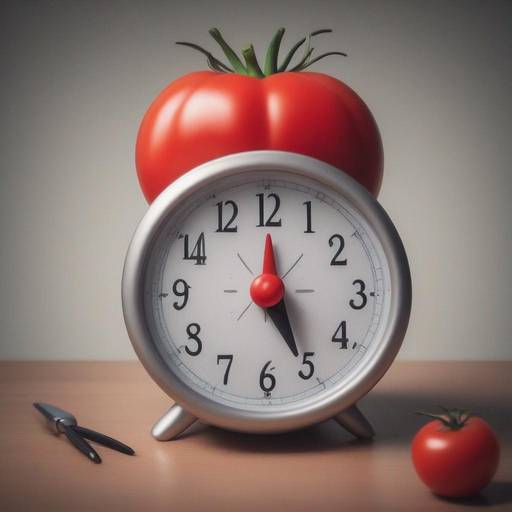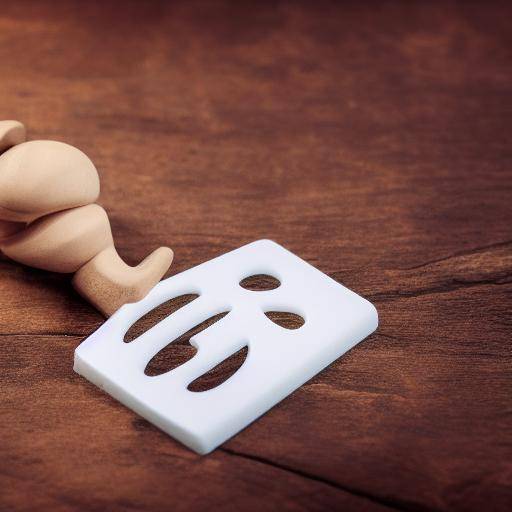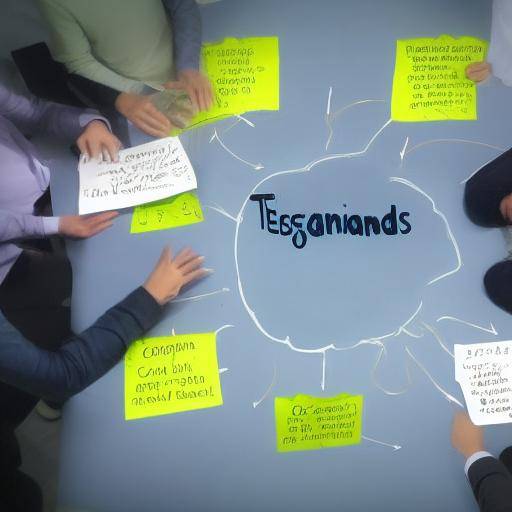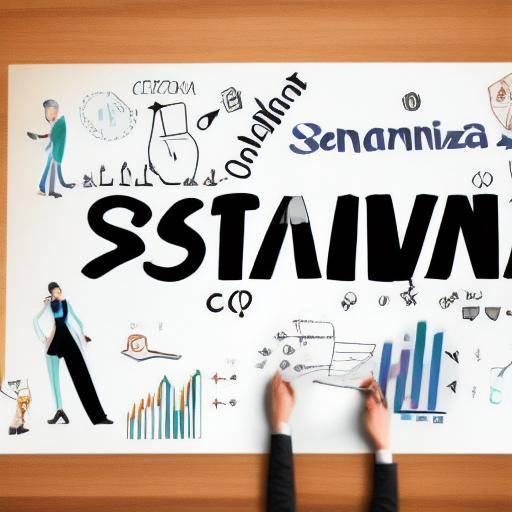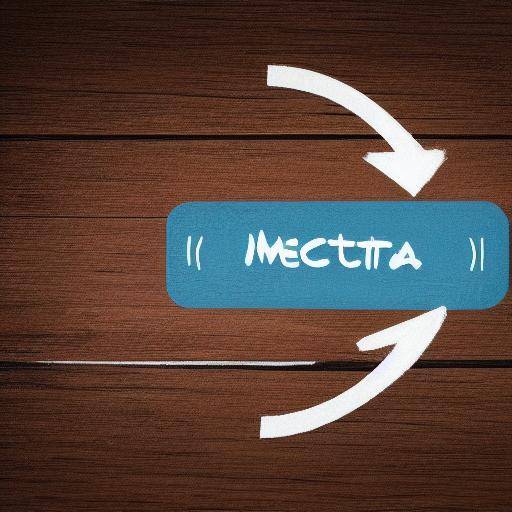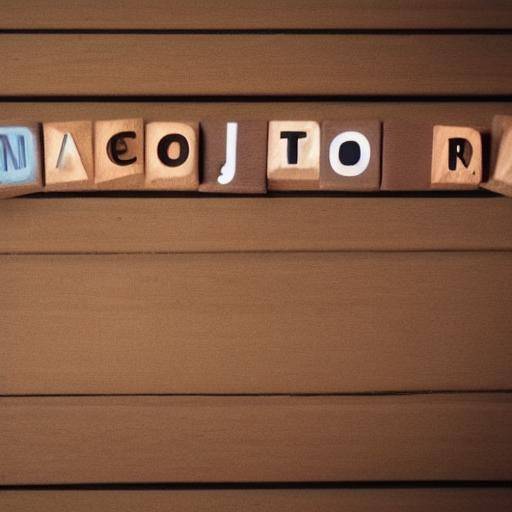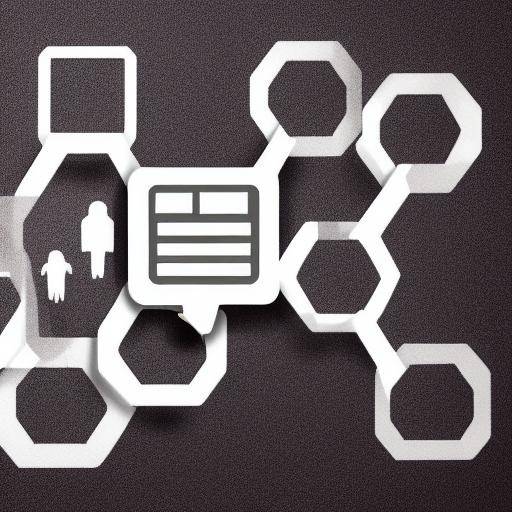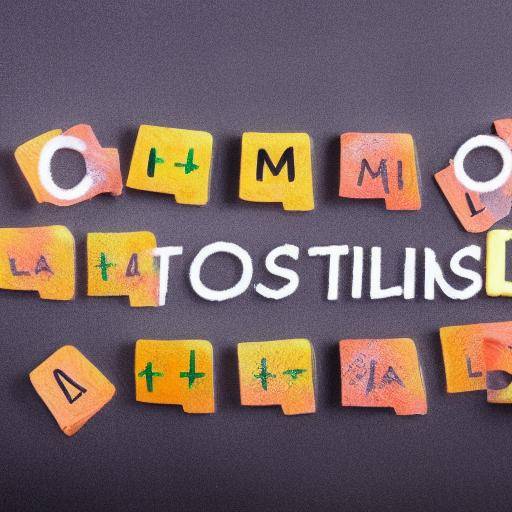
In today's society, the development of self-control is fundamental to personal and professional success. The ability to regulate our emotions, thoughts, and behaviors plays a crucial role in decision-making, stress management, and achieving goals. However, self-control does not arise from nothing, but is based on skills such as planning and organization, which in turn require continued practice and development.
In this article, we will explore in detail the importance of planning and organization in the development of self-control, and how these skills are closely related to personal success. From its history and evolution, to its application in the real world, through practical advice and future predictions, this article will provide an integral vision of the interconnection between planning, self-control and personal success.
History and Background
Planning and organization are fundamental concepts that have evolved over time. From ancient civilizations to the digital era, humanity has relied on the ability to plan and organize to survive, thrive and progress. In history, the ability to anticipate the future, set goals and design strategies has been fundamental to the advancement of society.
In the business world, strategic planning has been key to the development of successful enterprises, and has been adopted as a key practice in modern management. On the other hand, personal organization has been key to the development of personal effectiveness and the achievement of personal goals. Over the centuries, planning and organization have been the core of innovation and effective implementation in all aspects of human life.
Analysis in Deep
Planning and organization provide a number of tangible and direct benefits in the development of self-control. By establishing clear objectives, designing detailed action plans and efficiently assigning resources, an enabling environment for self-control is created. The ability to resist temptations and maintain the approach to objectives is enhanced by the structure that planning and organization provide.
On the other hand, the challenges that arise on the road to self-control, such as distractions, impulses and external pressures, can be effectively addressed with appropriate planning and organization strategies. By identifying potential obstacles and developing contingency plans, the ability to maintain self-control in adverse situations is strengthened.
Current trends show a growing interest in the integration of planning and organization in the development of self-control. With the advancement of technology, tools and applications have been developed specifically designed to assist in time management, task planning and personal organization. These innovations reflect the growing importance given to these skills in the current context.
Comprehensive review
Planning and organization have direct applications in people's daily lives, as well as in professional and business environments. From time management and prioritization, to strategic planning and project management, these skills are critical for effective decision-making, resource maximization and achievement of objectives.
Planning and organization approaches and practices vary widely depending on the nature of the task, available resources and individual preferences. Some people prefer rigorous and detailed methods, while others opt for more flexible and adaptive approaches. However, regardless of the specific approach, the key lies in the ability to anticipate, prepare and adapt to changing circumstances.
Personal success is directly influenced by the effective implementation of planning and organization in the development of self-control. Those who are able to set significant targets, design concrete plans and keep the focus in the midst of challenges are more likely to achieve outstanding levels of personal achievement. The "planner-mentality" has become a differentiating factor in an increasingly competitive world, where the ability to resist distractions and maintain the course for the goals is an invaluable asset.
Comparative analysis
The interaction between planning, self-control and personal success is evident in observing their similarities and differences. While planning and organization focus on the preparation and structuring of future actions, self-control focuses on managing emotions and resistance to immediate impulses. However, both skills converge in their ability to influence the achievement of long-term goals and objectives.
Personal success, for its part, reflects the result of the effective implementation of planning and self-control in a person's life. Those who manage their goals, emotions and behaviors effectively often experience a higher level of accomplishment and personal satisfaction. On the other hand, failure in the implementation of these skills can lead to a sense of uncontrollable and discontent in life.
Practical Tips and Accessible Recommendations
To improve the development of self-control through planning and organization, it is essential to adopt a number of effective practices and approaches. Here are some practical recommendations to promote the integration of these skills into everyday life:
- Establish clear and measurable goals, both in the short and long term.
- Disaggregate goals in specific tasks and actions.
- Use planning and time management tools.
- Assign priorities to tasks according to their importance and urgency.
- Establish routines and habits that encourage discipline and self-control.
- Evaluate and adjust plans and strategies periodically.
By implementing these councils, the ability to maintain the approach will be strengthened, to resist distractions and to make steady progress towards established goals.
Industry Perspectives and Expert Reviews
Within the community of experts in psychology, leadership and personal development, there is a widespread consensus on the importance of planning and organization in the development of self-control. The ability to anticipate and prepare for challenges, as well as the ability to maintain discipline and determination, are considered fundamental pillars for personal and professional success.
According to the renowned psychologist and author, Daniel Goleman, "a combination of self-consciousness and self-regulation is essential for effective leadership and sound decision-making. Planning and organization play a crucial role in developing these skills, providing the necessary framework for effective implementation of plans and maintaining self-control in challenging situations. "
Case Studies and Practical Applications
To understand the importance of planning and organization in the development of self-control, it is useful to analyze real cases where these skills have had a significant impact.
One notable case is that of Thomas Edison, the inventor of the incandescent bulb, who was known for his methodical approach and his ability to maintain self-control despite numerous initial failures. Through careful planning and tireless perseverance, Edison managed to develop an innovation that transformed society and the world.
Future Trends and Predictions
Looking forward, the integration of planning, organization and self-control is expected to continue to gain importance in the personal and professional spheres. With the emergence of innovative technologies, automation tools and advanced time management approaches, new opportunities will be opened to improve the development of these skills.
However, it is also anticipated that the growing complexity and speed of the modern world will present significant challenges for maintaining self-control through planning and organization. The ability to adapt to dynamic environments and maintain efficiency in the medium of uncertainty will be crucial for continuous success in a constantly evolving environment.
Conclusions
In short, planning and organization play a key role in the development of self-control, as well as in achieving personal success. These skills provide the necessary structure, discipline and strength to meet the challenges and achieve the desired goals. By integrating planning and organization into everyday life, the ability to resist temptations, maintain course and achieve higher levels of personal and professional realization is strengthened.
Frequently asked questions
How does lack of planning affect self-control?
Lack of planning can lead to disorganization, procrastination and impulsive decision-making, which in turn can undermine self-control. In the absence of a clear and structured plan, people are more likely to be overwhelmed by unexpected distractions and difficulties, negatively affecting their ability to maintain self-control.
How can I improve my planning and organization capacity?
Improved planning and organizational capacity requires practical and effective approaches. Some useful strategies include the establishment of clear targets, the creation of task lists, the allocation of realistic deadlines and the use of time management tools. Continuous practice and adaptation of results-based approaches are also critical.
What is the impact of planning on the workplace?
In the working environment, effective planning is crucial for project implementation, time management and strategic decision-making. The ability to anticipate and prepare for future challenges, as well as to efficiently allocate resources, directly influences the productivity and overall performance of individuals and organizations.
What is the relationship between organization and self-control?
The organization provides the necessary structure to maintain self-control in various situations. By maintaining an orderly and predictable environment, distractions are reduced and conscious decision-making is facilitated. The organization also allows for prioritization and focus on tasks that contribute to the achievement of objectives.
How can self-control influence personal success?
Self-control directly influences personal success by allowing people to resist short-term temptations for long-term goals. Those who can regulate their emotions, impulses and behaviors tend to make more informed decisions and keep the focus on meaningful life goals, leading to a greater degree of personal realization.
What is the role of planning in decision-making?
Planning influences decision-making by providing a structured framework to evaluate alternatives, anticipate consequences and design strategies to achieve desired results. By setting clear targets and designing detailed plans, people can make informed decisions that are aligned with their goals and values.
In conclusion, planning and organization are essential components in the development of self-control and the achievement of personal success. By effectively understanding and applying these skills, a greater sense of direction, discipline and achievement can be cultivated in all facets of life.

























